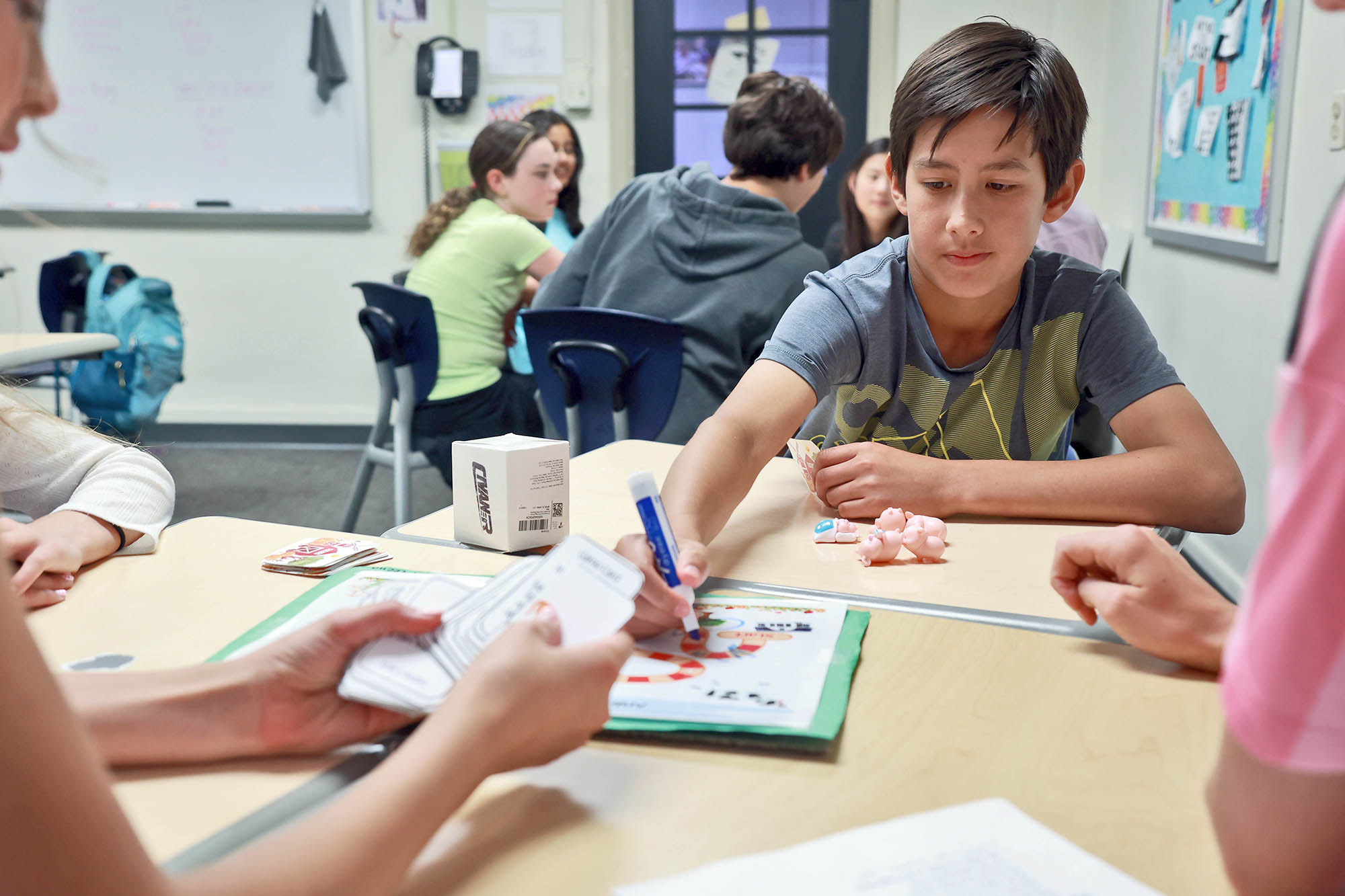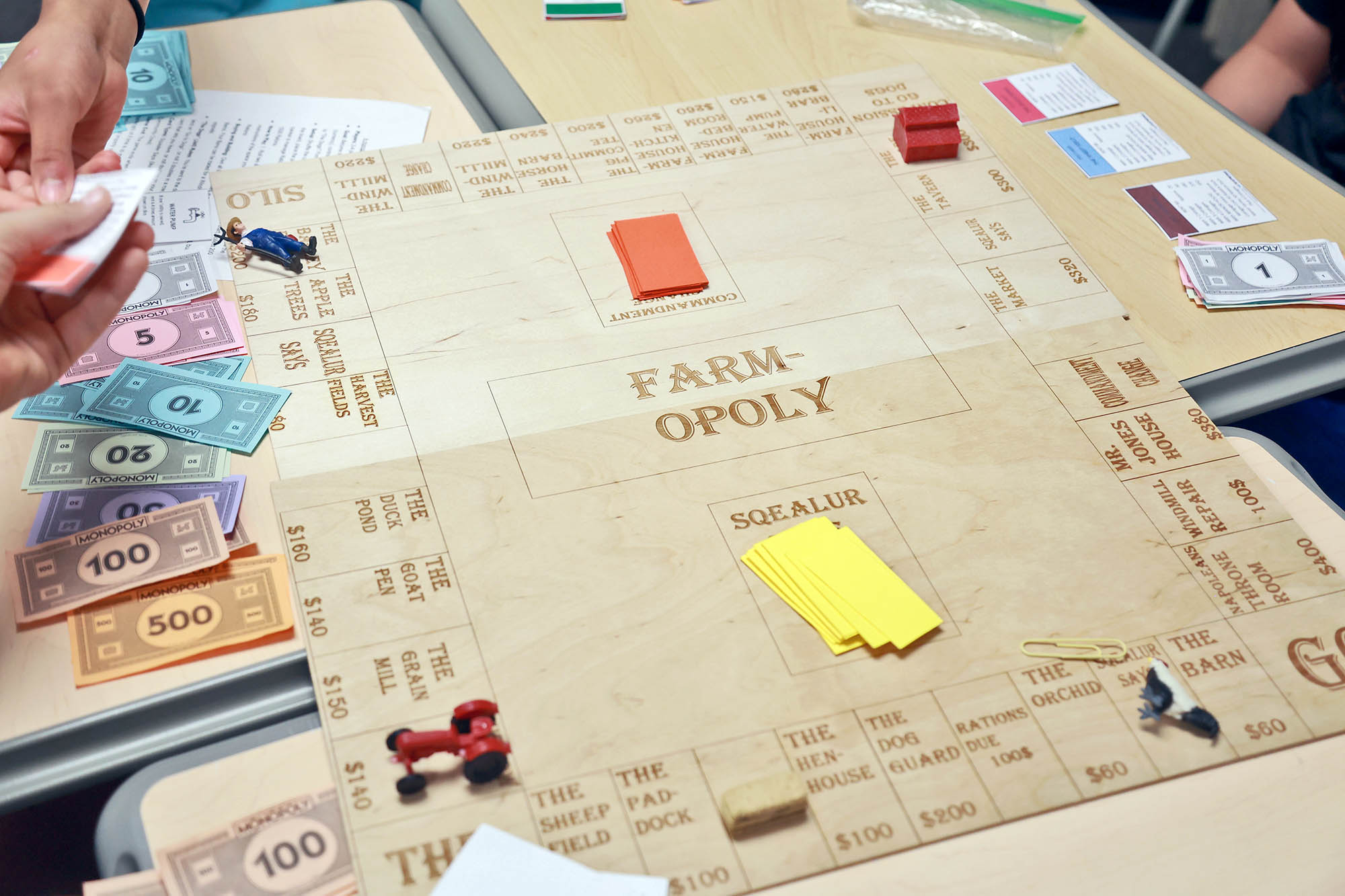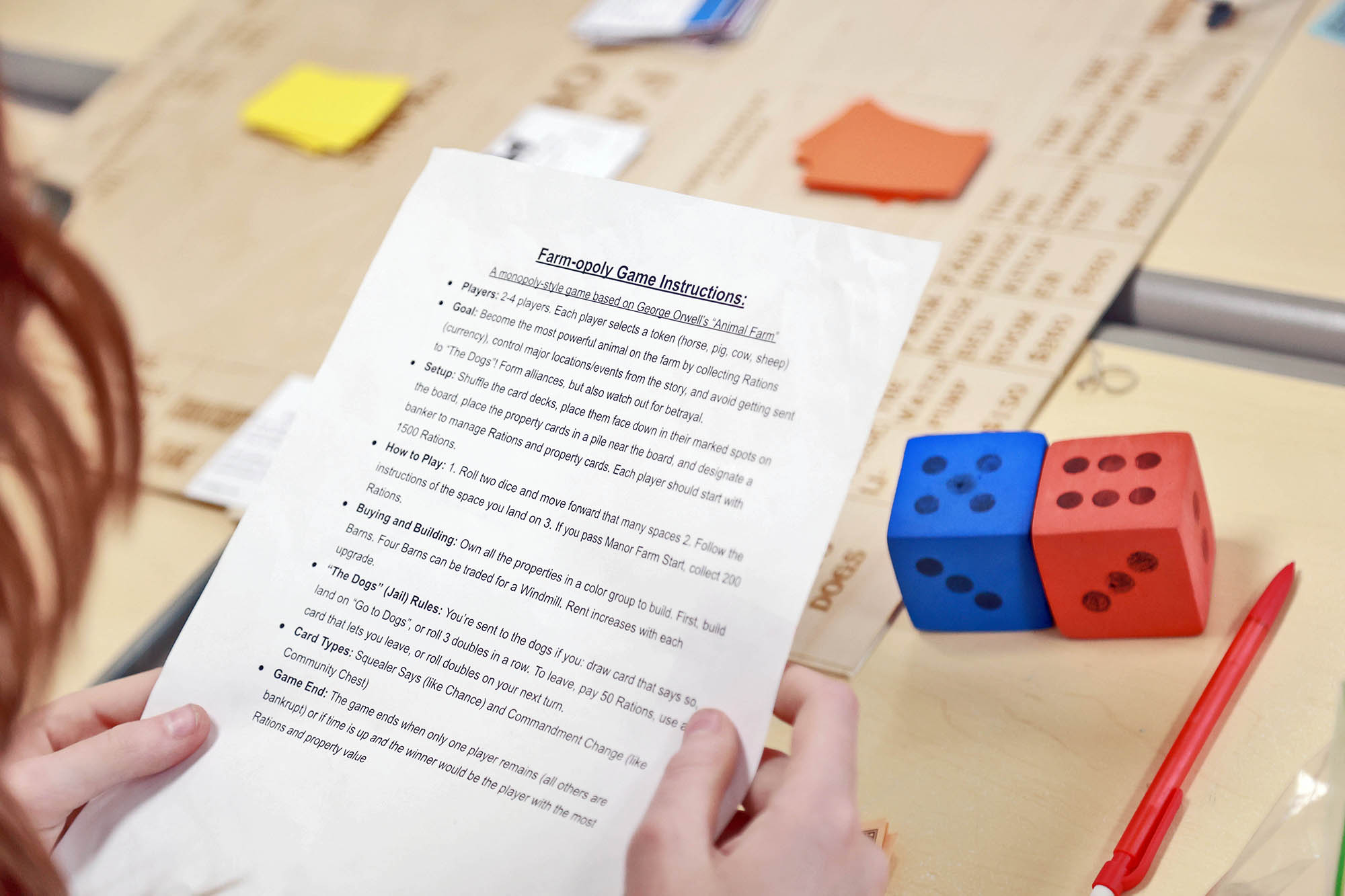Middle School English Teachers Megan Caulfield and Olivia Halverson have recently been working with their seventh-grade students to finish their unit on the George Orwell novella Animal Farm. The whole grade read the book, and the students have been busy writing essays.
After the school day ends, Caulfield hits the pitch as the Varsity Girls Soccer coach. One of her senior players mentioned that her class with Upper School English Teacher Celeste Prince had also read Animal Farm and designed and made board games themed around the book as their final project.
Lightning struck, and not the kind that clears the pitch and causes a game delay. Caulfield reached out to Prince, and a connection was made over a shared book. Soon after, the games designed by Prince’s students traveled down to the Middle School to be played by seventh graders.
“This is the first year we’ve read Animal Farm,” said Caulfield. “We wanted to expose students to a classic novel and introduce allegory. Students read the book, participated in whole-class discussions, and wrote an essay examining the warnings and messages sent by George Orwell through the writing of this novel.”
Caulfield was impressed by the work of her students. “I thought the students did a great job jumping into a new genre and finding connections to history,” she said. “Student discussion was elevated with their ability to draw parallels to what they’ve learned about different governments in their Global Perspectives class.”
Prince says her students came to Animal Farm in a different way: they chose it themselves. Her Literary Explorations class is comprised of all seniors, and after they had submitted their final papers, they had a small amount of time to dive into a new work. “They chose one last book to all read together, and developed their own curriculum to earn the last 200 points of the class,” Prince explained. The theme of her class is books that have been banned or challenged in the United States, so her students had a long list from which to choose. Given the time constraints, they wanted something that would be relatively quick to read. The short list included Maus by Art Spiegelman, New Kid by Jerry Craft, Gossip Girl by Cecily von Ziegesar, and Animal Farm by George Orwell.
Leena Daud ’25 mentioned that her seventh-grade brother, Samir ’30, was reading Animal Farm, which made it more intriguing to her classmates. CeCe Harris ’25 is on the varsity Girls Soccer team and, after her ALT class chose the book, shared with her coach that they were creating board games. The connection was inevitable.
Prince’s students jumped in with enthusiasm, especially after seeing that they could find cute pig tokens online. They worked solo or in small groups, exploring how to gamify a book of fiction. And they had to do it quickly. “They had three days to read the book, and only two and a half or three class days to work on their games,” said Prince. “Some came in during free period to work on them. For the little time they had, they really pulled it off. I was happily surprised.”
Caulfield and Halverson picked up the games and transported them to the Middle School, since by then the seniors had graduated. “I was super excited when my senior soccer player, CeCe Harris, told me about the senior board games she made in Ms. Prince’s class,” said Caulfield. “I love that we were able to make a connection with the work done in the Upper School.”
“The games aren’t perfect,” Prince admits. “If we had more time to play them, we could have done better.” That didn’t stop the eager seventh graders from having a blast playing their Animal Farm games. Ultimately, Prince thought her students did a great job. “From what they were able to conceive, this is pretty clever,” she said. “They were able to take what they already knew and then adapt it to a new context.”

























